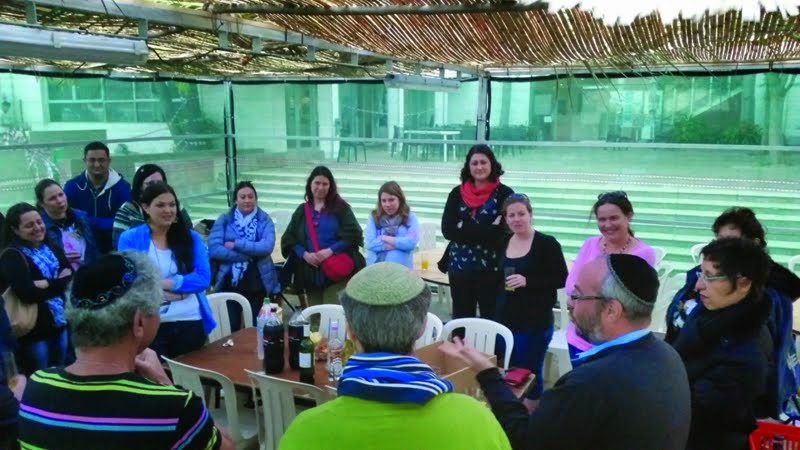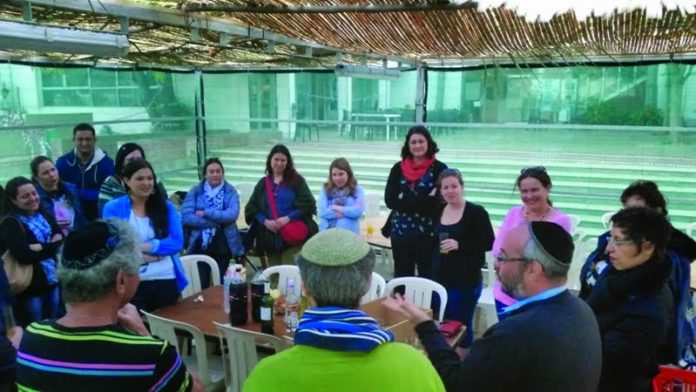
The Mini Nahum Goldmann Fellowship recently tackled the age-old question of pluralism in our community.
The odds were most definitely against us. It was a Sunday night in the middle of Sukkot. A howling South Easter ripped down part of the roof of the Sukkah, forcing us to reconvene inside a small boardroom. But none of that was able to stop the unprecedented magic that took place.
In true ‘Nahum’ spirit there was never a dull or quiet moment in the room. All present, even those new to the concept of the Mini Nahum Goldmann Fellowship — like the Ignite Young Leadership course participants — felt comfortable and encouraged to openly express their views. The evening was facilitated by Greg Alexander and Bryan Opert, one Progressive, the other Orthodox. Both brilliant Torah scholars and rabbinic leaders in their own right, they made the evening an exceptional affair.
Through their opposing schools of thought, the lively pair respectfully guided the discussion on ‘how broad is our Sukkah? Plurality and diversity in Judaism and the Jewish community’. The theme aimed to keep with the concept of Sukkot as a festival of inclusiveness through the ushpizin (guests) we choose to invite into our Sukkah — which posed the question: how do we as a community respond to diversity; and do we see inclusivity as a priority?
As ‘Nahum’ encourages the exploration of pertinent questioning through the medium of Jewish text, the evening focused on three thought-provoking texts from the Talmud Bavli and one from Pirkei Avot. Each text traversed the debates facing the sages around how to manage difference of opinion, multiple truths and how to decide law according to guiding principles. Whether it’s a question of how or if one should record the opinion of the minority or how best to approach the question of conversion, the texts clearly illustrated that rigorous debate, questioning and diversity has always been valued and respected within our Jewish tradition.
The discussion then turned to the community we live in and subscribe to today. Both Alexander and Opert were adamant that in order to have a meaningful and relevant discussion all the uncomfortable or ‘awkward’ topics should not be left as ‘elephants in the room’. Thus, issues surrounding the different streams of Judaism, political views around Zionism, the Jewish education we teach our children, and even the topic of the Chief Rabbi generated powerful debate.
The diversity of the group, the wisdom of the facilitators, and the principles of the Nahum Goldmann Fellowship meant that the evening was a respectful, constructive and engaging forum, a rarity in a community where divisiveness is becoming increasingly difficult to challenge.











